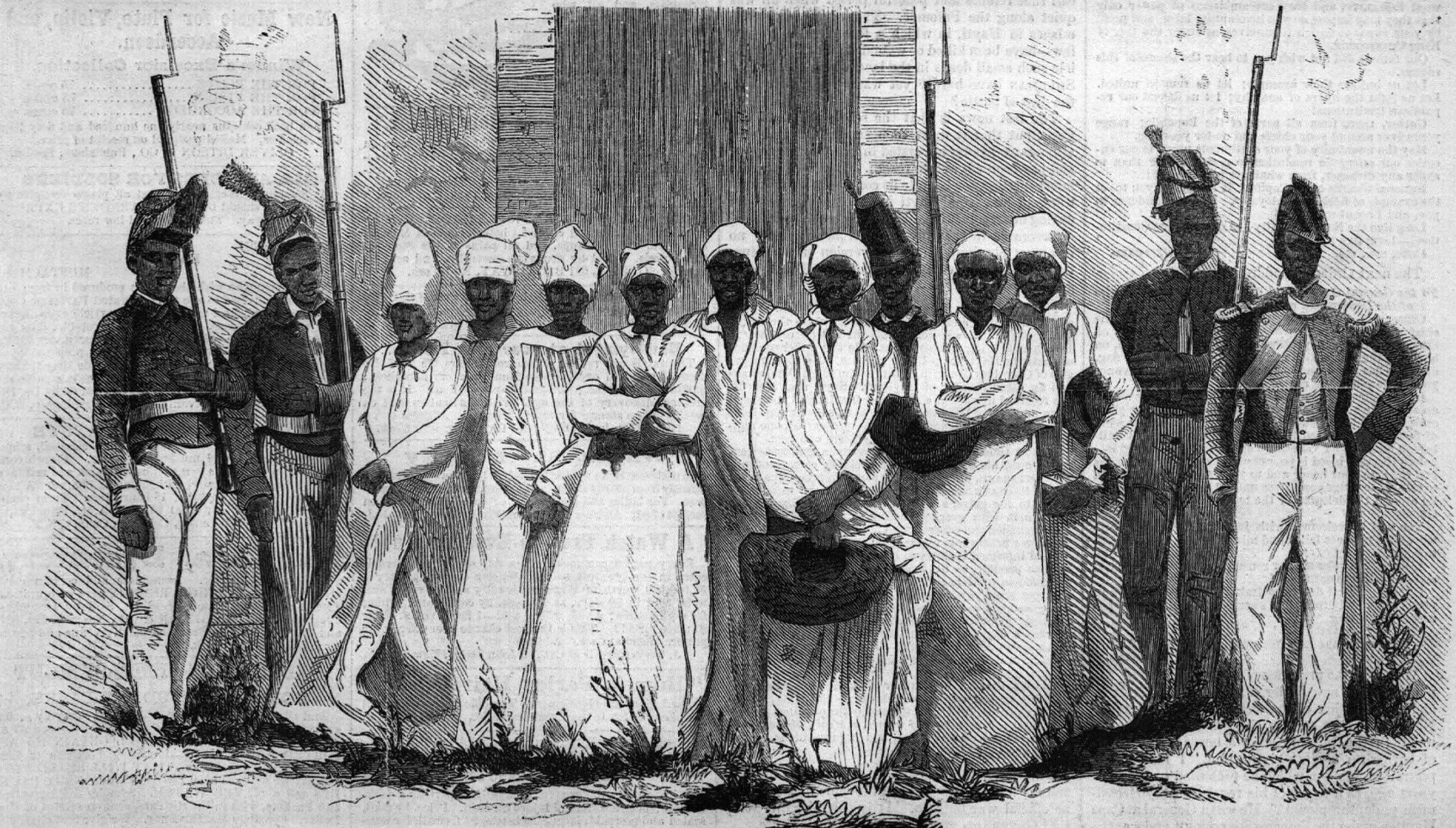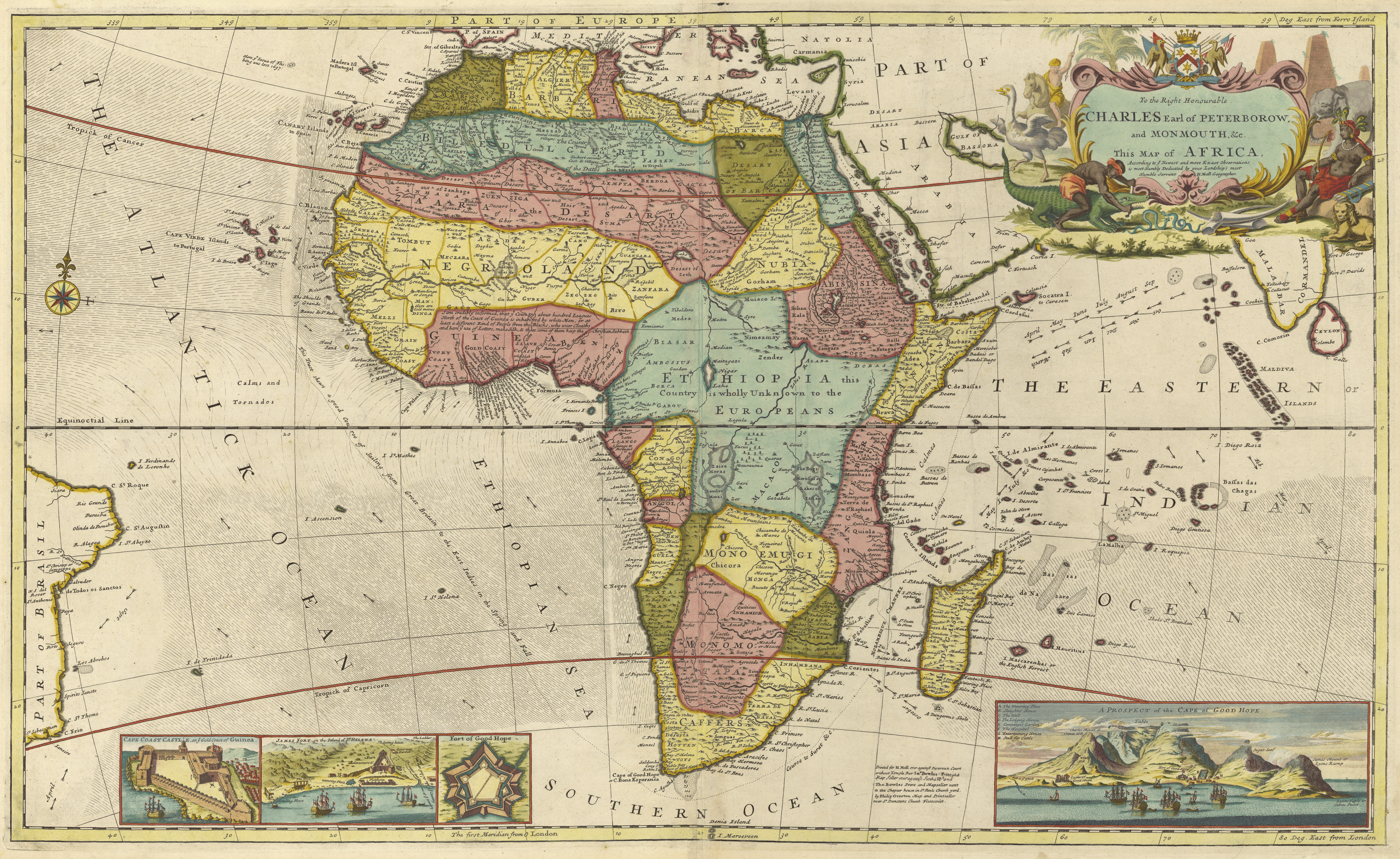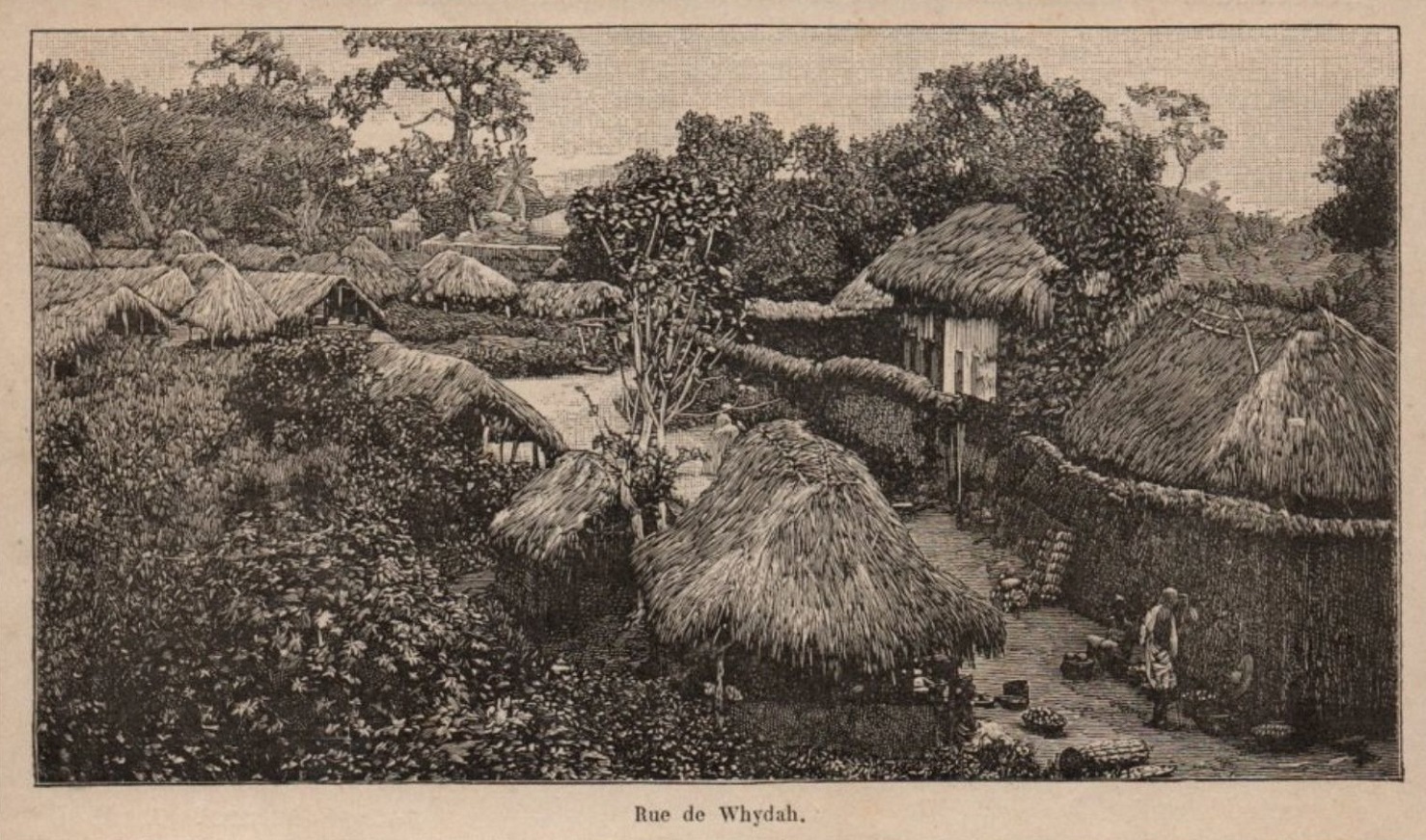|
Fon People
The Fon people, also called Dahomeans, Fon nu, Agadja and historically called Jeji (Djedji) by the Yoruba in the South American diaspora and in colonial French literature are a Gbe ethnic group.Fon people Encyclopædia Britannica, undated, 1.7 million population, Retrieved June 29, 2019 They are the largest ethnic group in Benin, found particularly in its south region; they are also found in southwest and Togo. Their total population is estimated to be about 3,500,000 people, and they speak the [...More Info...] [...Related Items...] OR: [Wikipedia] [Google] [Baidu] |
Dahomey Amazons
The Dahomey Amazons ( Fon: Agojie, Agoji, Mino, or Minon) were a Fon all-female military regiment of the Kingdom of Dahomey (in today's Benin, West Africa) that existed from the 17th century until the late 19th century. They were the only female army in modern history. They were named Amazons by Western Europeans who encountered them, due to the story of the female warriors of Amazons in Greek mythology. The emergence of an all-female military regiment was the result of Dahomey's male population facing high casualties in the increasingly frequent violence and warfare with neighbouring West African states. This led to Dahomey being one of the leading states in the slave trade with the Oyo Empire, which used slaves for commodity exchange in West Africa until the slave trade in the region ended. The lack of men likely led the kings of Dahomey to recruit women into the army. The formation of a female-only army unit was a retaliation and maneuver around the forced tribute of male ... [...More Info...] [...Related Items...] OR: [Wikipedia] [Google] [Baidu] |
Trinidad
Trinidad is the larger, more populous island of the Republic of Trinidad and Tobago, the country. The island lies off the northeastern coast of Venezuela and sits on the continental shelf of South America. It is the southernmost island in the Caribbean. With an area of , it is also the fifth-largest in the Caribbean. Name The original name for the island in the Arawakan languages was which meant "Land of the Hummingbird". Christopher Columbus renamed it ('The Island of the Trinity'), fulfilling a vow he had made before setting out on his third voyage. This has since been shortened to ''Trinidad''. Indo-Trinidadians called the island चीनीदत्त , 𑂒𑂲𑂢𑂲𑂠𑂞𑂹𑂞 , , ''Chinidat'' or ''Chinidad'' in Trinidadian Hindustani which translated to the land of sugar. The usage of the term goes back to the 19th century when recruiters from India would call the island ''Chinidat'' as a way of luring workers into indentureship. On Tuesday, 31 Jul ... [...More Info...] [...Related Items...] OR: [Wikipedia] [Google] [Baidu] |
Bight Of Biafra
The Bight of Biafra, also known as the Bight of Bonny, is a bight off the west- central African coast, in the easternmost part of the Gulf of Guinea. This "bight" has also sometimes been erroneously referred to as the "Bight of Africa" because it is at this point where the direction of the Western coastline of the African continent most prominently changes from a North/ South orientation to an East/ West orientation. Geography The Bight of Biafra, between Cape Formosa and Cape Lopez, is the most eastern part of the Gulf of Guinea; it contains the islands Bioko (part of Equatorial Guinea), São Tomé and Príncipe. The name Biafra – as indicating the country – fell into disuse in the later part of the 19th century A 1710 map indicates that the region known as "Biafar" was located in present-day Cameroon. The Bight of Biafra extends east from the River Delta of the Niger in the north until it reaches Cape Lopez in Gabon. [...More Info...] [...Related Items...] OR: [Wikipedia] [Google] [Baidu] |
Bight Of Benin
The Bight of Benin, or Bay of Benin, is a bight in the Gulf of Guinea area on the western African coast that derives its name from the historical Kingdom of Benin. Geography The Bight of Benin was named after the Kingdom of Benin. It extends eastward for about from Cape St. Paul to the Nun outlet of the Niger River, Historical associations with the Atlantic slave trade led to the region becoming known as the Slave Coast. As in many other regions across Africa, powerful indigenous kingdoms along the Bight of Benin relied heavily on a long-established slave trade that expanded greatly after the arrival of European powers and became a global trade with the colonization of the Americas. Estimates from the 1640s suggest that Benin (Beneh) took in 1200 slaves a year. Restrictions made it hard for slave volume to grow until new states and different routes began to make an increase in slave trade possible. Cultural references The Bight of Benin has a long association with slaver ... [...More Info...] [...Related Items...] OR: [Wikipedia] [Google] [Baidu] |
West Central Africa
West is one of the four cardinal directions or points of the compass. It is the opposite direction from east and is the direction in which the Sun sets on the Earth. Etymology The word "west" is a Germanic word passed into some Romance languages (''ouest'' in French, ''oest'' in Catalan, ''ovest'' in Italian, ''vest'' in Romanian, ''oeste'' in Spanish and Portuguese). As in other languages, the word formation stems from the fact that west is the direction of the setting sun in the evening: 'west' derives from the Indo-European root ''*wes'' reduced from ''*wes-pero'' 'evening, night', cognate with Ancient Greek ἕσπερος hesperos 'evening; evening star; western' and Latin vesper 'evening; west'. Examples of the same formation in other languages include Latin occidens 'west' from occidō 'to go down, to set' and Hebrew מַעֲרָב (maarav) 'west' from עֶרֶב (erev) 'evening'. West is sometimes abbreviated as W. Navigation To go west using a compass for navigati ... [...More Info...] [...Related Items...] OR: [Wikipedia] [Google] [Baidu] |
John Donnelly Fage
John Donnelly Fage (3 June 1921–6 August 2002) was a British historian who was among the first academics to specialise in African history, especially of the pre-colonial period, in the United Kingdom and West Africa. He published a number of influential studies on West African history including ''Introduction to the History of West Africa'' (1955). He subsequently co-founded the '' Journal of African History'', the first specialist academic journal in the field, with Roland Oliver in 1960. Career Early life John Fage was born in Teddington in Middlesex, England on 3 June 1921. He was educated at Tonbridge School and Magdalene College, Cambridge from 1939 where he studied history but his studies were interrupted by World War II. Fage was conscripted into the Royal Air Force (RAF) in 1942 and was posted to Southern Rhodesia (modern-day Zimbabwe) as part of the Commonwealth Air Training Plan. He served in several postings elsewhere on the continent, including in Madagasca ... [...More Info...] [...Related Items...] OR: [Wikipedia] [Google] [Baidu] |
Herbert S
Herbert may refer to: People * Herbert (musician), a pseudonym of Matthew Herbert * Herbert (given name) * Herbert (surname) Places Antarctica * Herbert Mountains, Coats Land * Herbert Sound, Graham Land Australia * Herbert, Northern Territory, a rural locality * Herbert, South Australia. former government town * Division of Herbert, an electoral district in Queensland * Herbert River, a river in Queensland * County of Herbert, a cadastral unit in South Australia Canada * Herbert, Saskatchewan, Canada, a town * Herbert Road, St. Albert, Canada New Zealand * Herbert, New Zealand, a town * Mount Herbert (New Zealand) United States * Herbert, Illinois, an unincorporated community * Herbert, Michigan, a former settlement * Herbert Creek, a stream in South Dakota * Herbert Island, Alaska Arts, entertainment, and media Fictional entities * Herbert (Disney character) * Herbert Pocket, a character in the Charles Dickens novel ''Great Expectations'' * Herbert West, titl ... [...More Info...] [...Related Items...] OR: [Wikipedia] [Google] [Baidu] |
Kongo People
The Kongo people (also , singular: or ''M'kongo; , , singular: '') are a Bantu ethnic group primarily defined as the speakers of Kikongo. Subgroups include the Beembe, Bwende, Vili, Sundi, Yombe, Dondo, Lari, and others. They have lived along the Atlantic coast of Central Africa, in a region that by the 15th century was a centralized and well-organized Kingdom of Kongo, but is now a part of three countries. Their highest concentrations are found south of in the Republic of the Congo, southwest of Pool Malebo and west of the Kwango River in the Democratic Republic of the Congo, north of Luanda, Angola and southwest Gabon. They are the largest ethnic group in the Republic of the Congo, and one of the major ethnic groups in the other two countries they are found in. In 1975, the Kongo population was reported as 4,040,000. The Kongo people were among the earliest indigenous Africans to welcome Portuguese traders in 1483 CE, and began converting to Catholicism in the la ... [...More Info...] [...Related Items...] OR: [Wikipedia] [Google] [Baidu] |
Édouard Foà
Édouard Foà, born Aron Fortuné Emmanuel Édouard Georges Foà, (17 December 1862–29 June 1901) was a late 19th-century French Geographical exploration, explorer and travel writer. He is mainly known for two extensive Exploration, expeditions across southern and central Africa between 1891 and 1897. Following this, he published nine books on his travels between 1895 and 1901, most of them with Halftone, photomechanical reproductions of his extensive legacy of more than 500 photographs. Through his publications, he enriched the knowledge about Africa of the late 19th century with geographical, Ethnography, ethnographical, political and social descriptions, as well as Documentary photography, documentary images. For this, he was awarded important distinctions by the French Société de Géographie, Geographical Society, the Académie Française and the highest order of merit of the French Republic, the Legion of Honour, Knight of the Legion of Honour. Biography Early life ... [...More Info...] [...Related Items...] OR: [Wikipedia] [Google] [Baidu] |
Archibald Dalzel
Archibald Dalzel ( – ) was a British colonial administrator and slave trader who served as the governor of the Gold Coast from 1792 to 1802. Between 1804 and 1808, he owned two slave ships. Dalzel died in 1818. Life Dalzel was born in Kirkliston, Scotland and he trained to be a doctor in Edinburgh. After a spell in the Royal Navy he resolved to take a job in Africa as he saw it as a way to make money. He went to Africa as a surgeon in 1763 but started trading slaves to add to his salary.James A. Rawley, ‘Dalzel , Archibald (1740–1818)’, Oxford Dictionary of National Biography, Oxford University Press, 2004; online edn, Jan 200accessed 21 Dec 2014/ref> He served four years as governor of Whydah (now Ouidah, Benin). He observed that the people at Whydah "pay a kind of veneration to a particular species of large snake, which is very gentle." Dalzal returned to England in 1770. Appointed by the Committee of Merchants that was in charge of the Gold Coast at the time, he se ... [...More Info...] [...Related Items...] OR: [Wikipedia] [Google] [Baidu] |
Ouidah
Ouidah (English: ; French: ) or Whydah (; ''Ouidah'', ''Juida'', and ''Juda'' by the French; ''Ajudá'' by the Portuguese; and ''Fida'' by the Dutch), and known locally as Glexwe, formerly the chief port of the Kingdom of Whydah, is a city on the coast of the Republic of Benin. The commune covers an area of and as of 2002 had a population of 76,555 people. History In local tradition Kpassa is supposed to have founded the town. This probably happened towards the end of the sixteenth century. The town was originally known as ''Glēxwé'', literally 'Farmhouse', and was part of the Kingdom of Whydah. Ouidah saw its role in international trade rise when the Royal African Company (RAC) constructed a fort there in 1650. Whydah troops pushed their way into the African interior, capturing millions of people through wars, and selling them to European and Arab slave traders. By 1716, the Kingdom of Whydah had become the second largest slave port in the triangular trade, as noted by ... [...More Info...] [...Related Items...] OR: [Wikipedia] [Google] [Baidu] |






